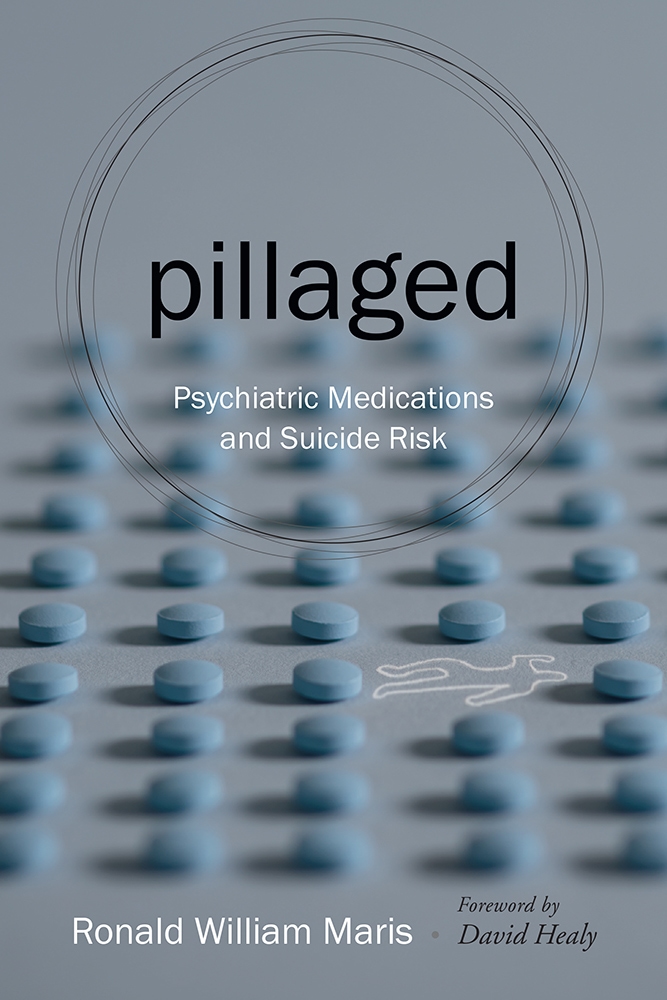Black History Month Sale: 40% off all books, plus FREE SHIPPING on all U.S. orders over $50 | Use code JBHM26

Size: 6 x 9
Pages: 226
Illustrations: 1 b&w line drawing
Ronald W. Maris
The inclusion of this book in the Open Carolina collection is made possible by the generous funding of
"In Pillaged: Psychiatric Medications and Suicide Risk, Maris presents a compelling account of the dangers of psychiatric medications. Unlike most medical procedures, for which patients are given clear warnings about the dangers and sign consent forms, psychiatrists and family physicians prescribe psychiatric medications, which can have serious harmful consequences, without warning their patients and, possibly, not even being aware of these harmful consequences themselves. Maris's book should be required reading for all those who prescribe these medications."—David Lester, former president, International Association for Suicide Prevention
"In Pillaged, premier suicidologist Ron Maris mounts the most reasoned and thoroughly researched assault yet mounted against the psychopharmaceutical industry and the sometimes shabby prescribing practices of psychiatrists and primary care providers. This book is a significant contribution to the public debate on these issues, but those who truly need these medications should be aware that a strong relationship with a caring physician may be the best protection against staying too long on a medication that aggravates rather than relieves distress."—Park Dietz, President, Park Dietz & Associates, Inc., and clinical professor of psychiatry and biobehavioral sciences, UCLA David Geffen School of Medicine
"Despite the dramatic increase in the number of Americans taking antidepressants since 1950, the suicide rate has actually increased. A highly experienced expert witness in drug litigation, Maris provides enormous insight into the medicalization of suicide, which he argues is partly driven by carefully guarded economic interests, not entirely as a cure for the suicidal population. Billions in profits have been made, while the suicide rate has increased. Can the social roots of suicide be cured by pills or are we being pillaged?"—Steven Stack, professor, Department of Criminology, Department of Psychiatry, Wayne State University
""In pillaged, premier suicidologist Ron Maris mounts the most reasoned and thoroughly researched assault yet mounted against the psychopharmaceutical industry and the sometimes shabby prescribing practices of psychiatrists and primary care providers. This book is a significant contribution to the public debate on these issues, but those who truly need these medications should be aware that a strong relationship with a caring physician may be the best protection against staying too long on a medication that aggravates rather than relieves distress.""—Park Dietz, President, Park Dietz & Associates, Inc., and clinical professor of psychiatry and biobehavioral sciences, UCLA David Geffen School of Medicine
Copyright 2026
Website By Morweb.org